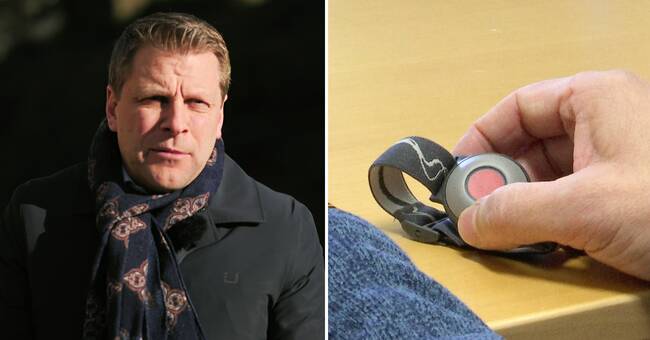Last year, the City of Stockholm made a major procurement of new security alarms.
The winner would deliver an alarm for a period of two years with the possibility of a two-year extension.
15,000 Stockholmers today have security alarms at home and the deal was valued at SEK 14 million.
In August, the agreement was signed with the industry giant Tunstall, but already after the first delivery, question marks arose.
The city's tests showed serious shortcomings - especially around the functions in the event of a power outage.
Does not meet the battery requirement
The parties are silent about the details, but SVT has requested an email exchange that shows how the city's test shows that none of the tested alarms meet the agreement's requirements for 72 hours of battery life.
They went out after 24 hours.
Tunstall conducts its own tests which, according to the company, show that the alarms meet the requirements, and propose that the settings be changed so that the alarms send out control signals less often than in network operation.
The city accepts some changes but at the same time discovers new errors.
Finally, it is announced that the agreement is being terminated, with reference to the fact that the batteries still do not last, that control signals and test alarms do not work properly and that the web interface used to monitor the alarms does not display the correct information.
Distributed alarms are taken back
According to the documents, Tunstall has so far delivered over 2,000 alarms.
The elderly administration's communications manager Carl Smitterberg tells SVT that only "a few" have had time to be delivered to users, but that these have now been replaced.
- I can not remember that we have done something similar before.
Tunstall has received extensive criticism after the autumn chaos where amounts of alarms were delayed in a large number of municipalities, which gave rise to both IVO reports and claims for damages.
Can be decided in court
The company does not conduct an interview about the conflict with Stockholm, but writes in a comment that the requirements are met and that the cancellation is unfounded.
In an email to the city, they go further and write that the cancellation "constitutes in itself a significant breach of contract which gives Tunstall the right to terminate the Agreement and in addition demand compensation".
The issue may now be decided in court.
- I can state that we have different views on how the agreement should be fulfilled, says Carl Smitterberg.

